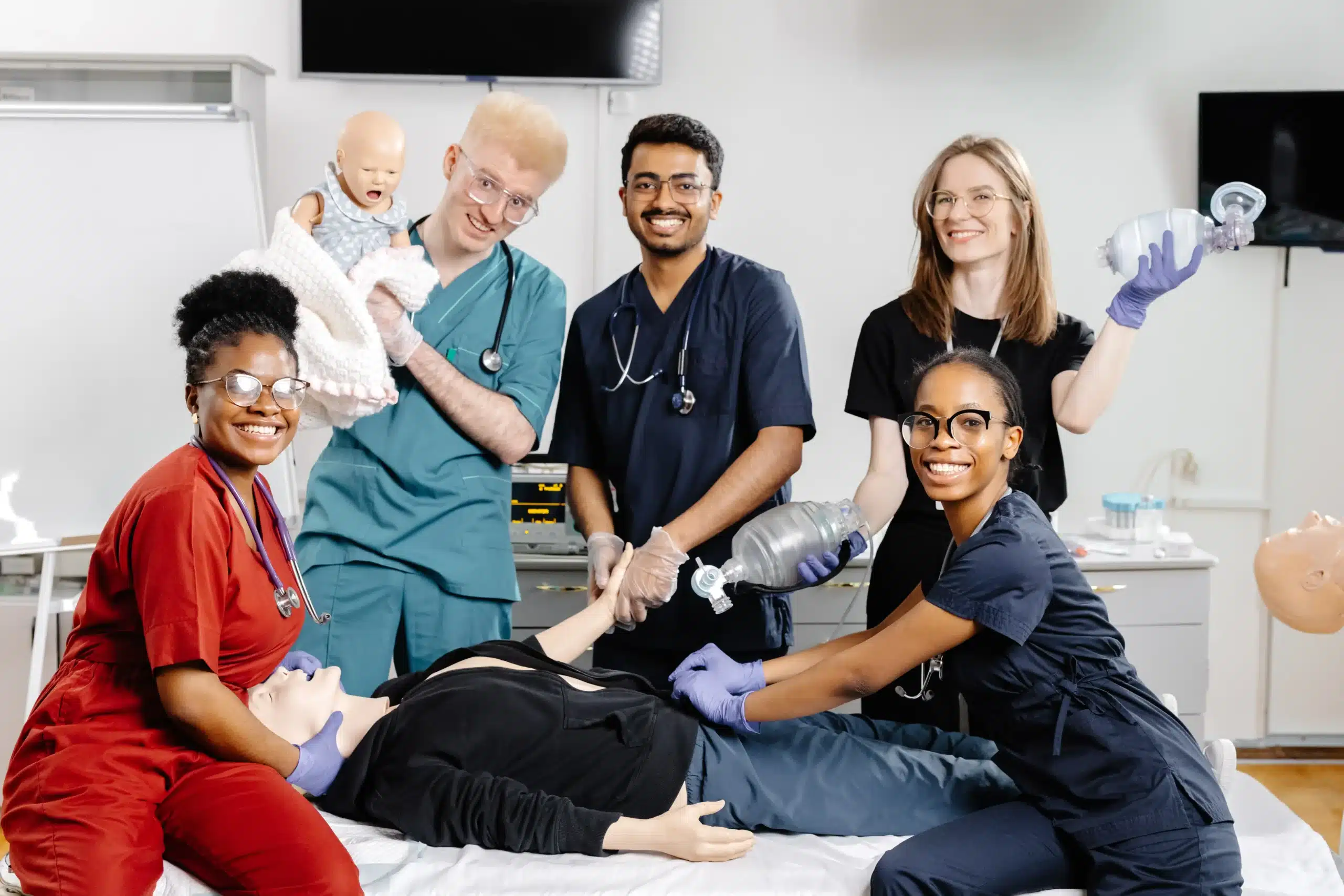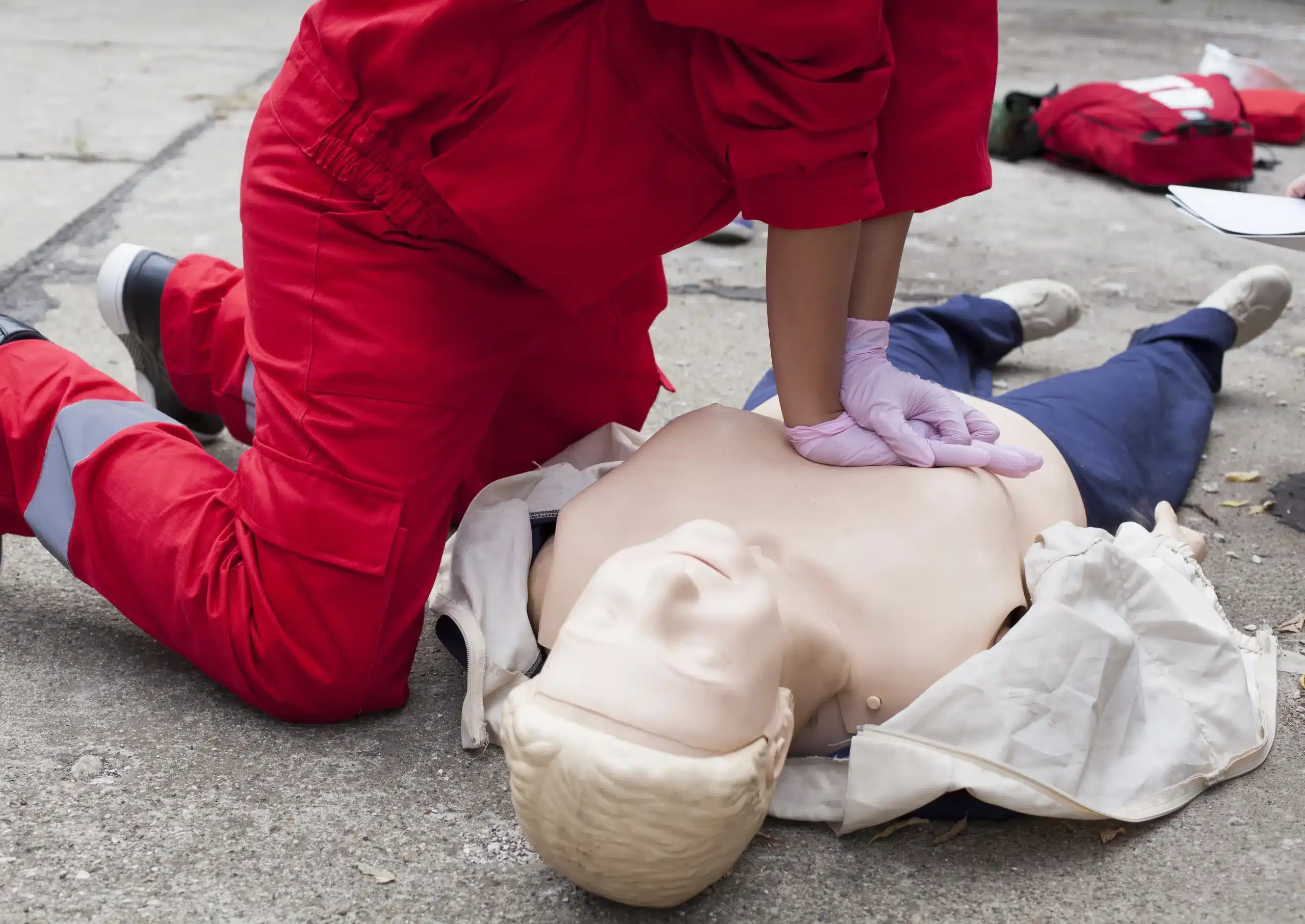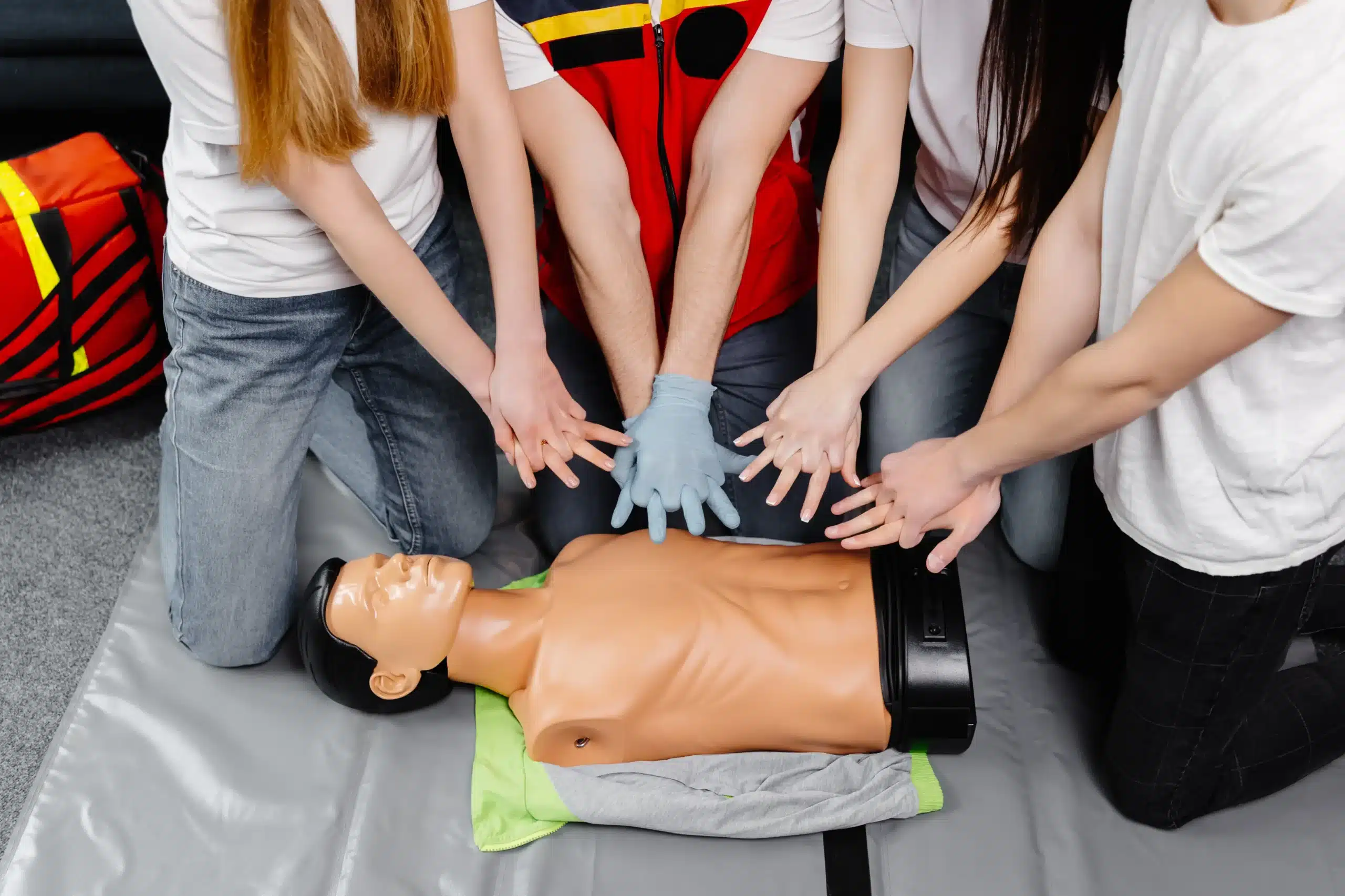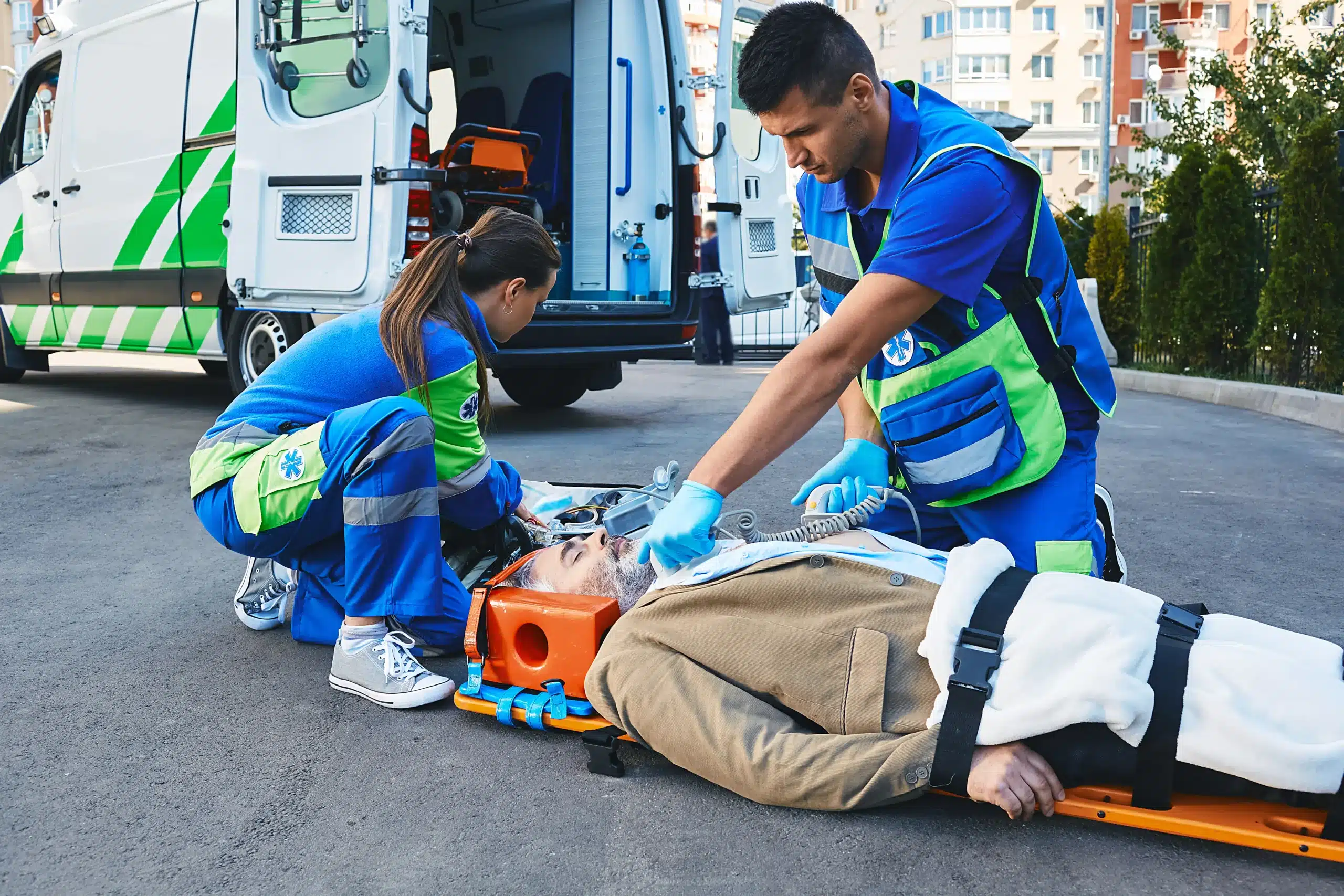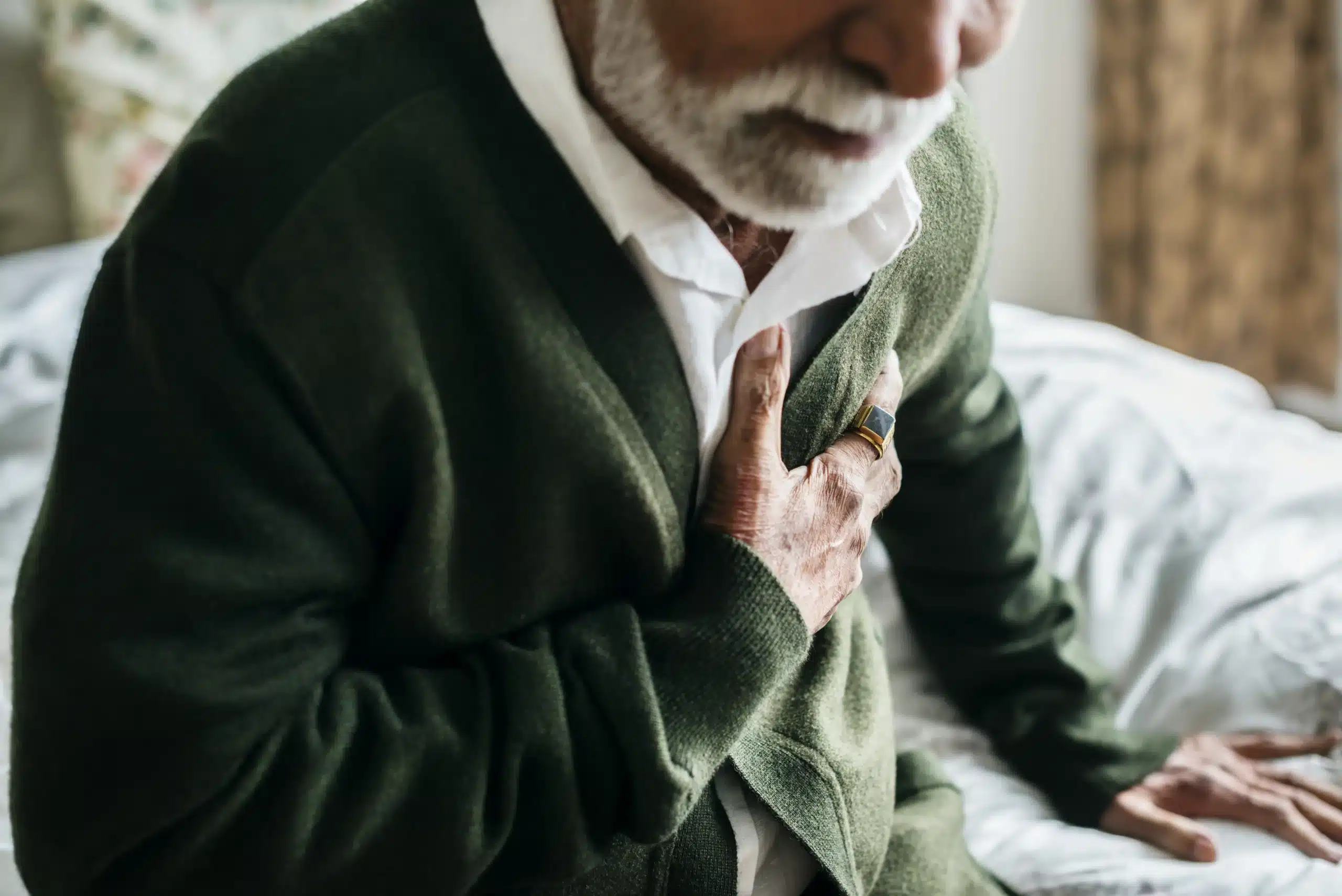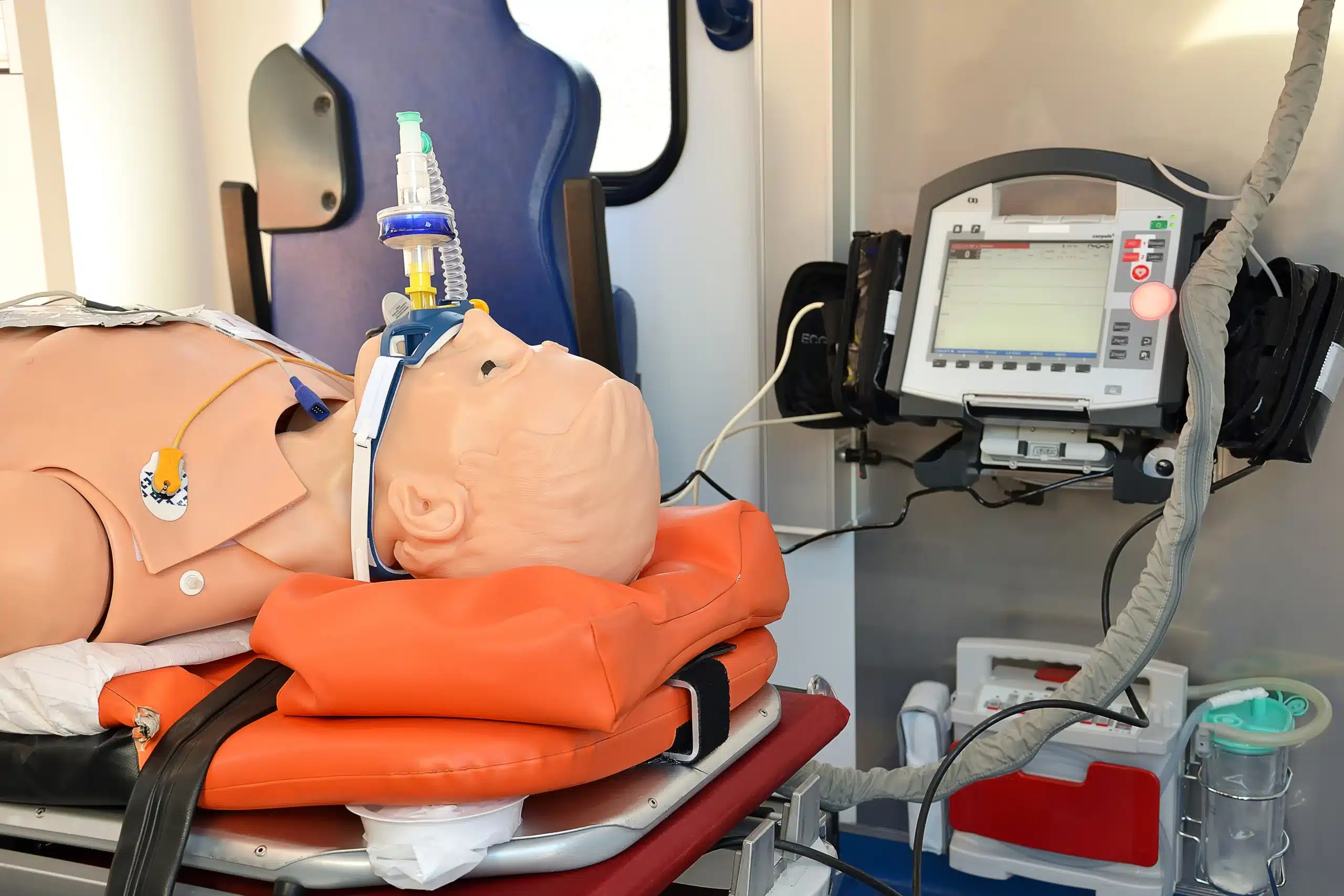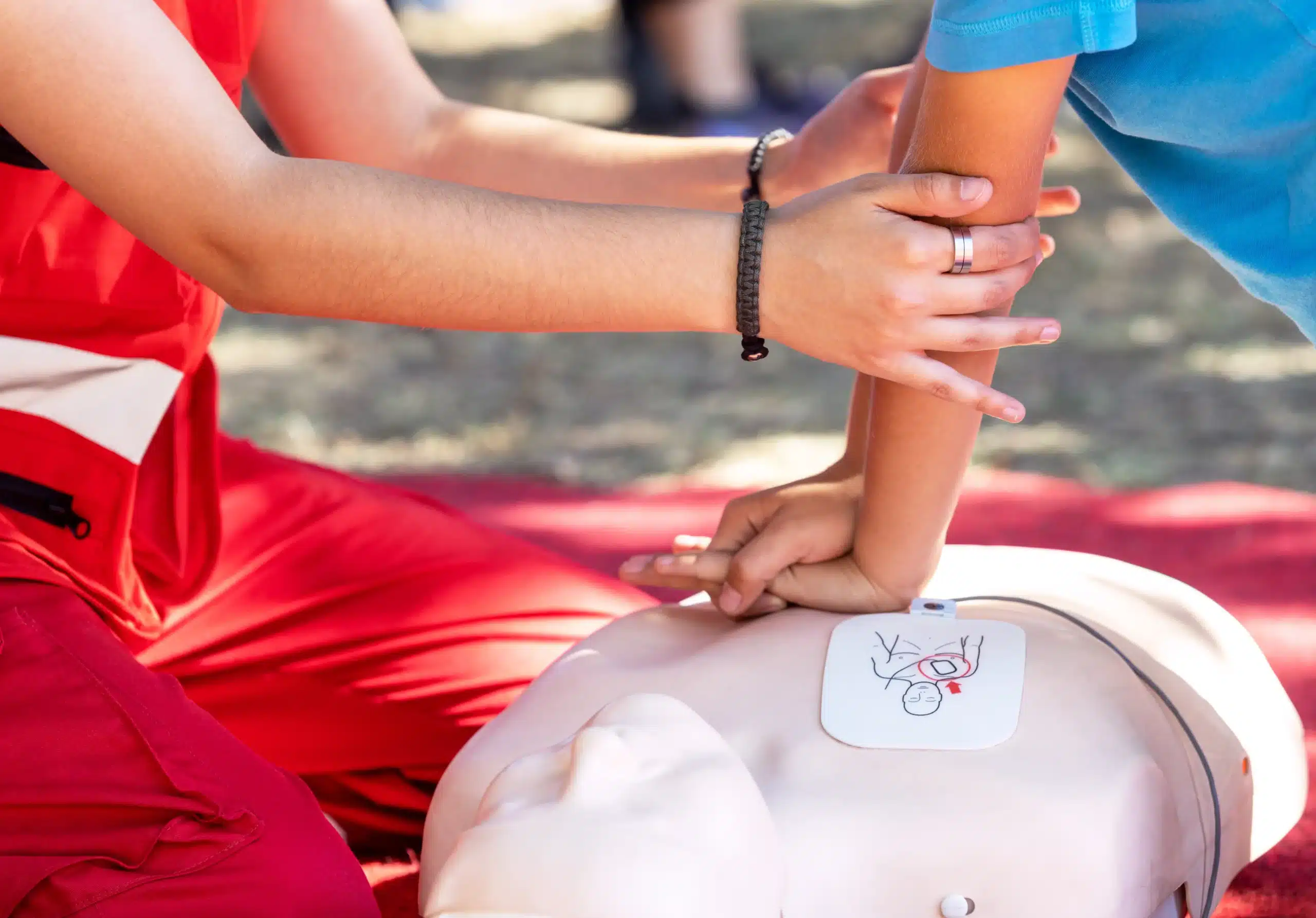In the face of an emergency, knowing CPR and first-aid can be the difference between life and death. Finding comprehensive and reliable training in Stockton is crucial for anyone wanting to develop these essential skills. This guide provides a detailed overview of CPR and first-aid training options in Stockton, covering everything from course content and format to costs and certification. We’ll explore the various types of CPR and first-aid courses available, discuss the benefits of in-person training, and offer tips for choosing the right provider. Whether you’re a healthcare professional seeking recertification or a community member wanting to learn these life-saving skills, this guide will help you find the perfect CPR and first-aid training in Stockton to meet your specific needs.
Key Takeaways
- Find the right CPR and first aid course for you: Whether you’re a healthcare provider, childcare professional, or simply want to be prepared for emergencies, various courses cater to different needs and schedules. Consider your specific requirements when choosing between basic life support (BLS), advanced cardiovascular life support (ACLS), pediatric advanced life support (PALS), or a combined CPR/first aid course.
- Select a reputable training provider: Look for providers like Tracy CPR Classes or the American Red Cross that offer high-quality instruction, convenient locations, and flexible scheduling options. Reading reviews and comparing prices can help you make an informed decision.
- Stay current with your skills: CPR and first aid certifications typically expire after two years. Regular practice and continuing education are essential for maintaining your skills and confidence. Set reminders to renew your certification and explore advanced training opportunities to enhance your knowledge.
What is CPR and First Aid?
CPR (cardiopulmonary resuscitation) is a lifesaving technique used when someone’s heart stops beating. It combines chest compressions and rescue breaths to restore blood circulation and oxygen flow to the brain and other vital organs. Learning CPR empowers you to respond effectively during these critical moments. Different CPR techniques exist for adults, children, and infants, so understanding these variations is important.
First aid covers a much broader spectrum of medical emergencies. It involves providing initial care for various injuries and illnesses, from minor cuts and scrapes to more serious situations like burns or choking. First aid skills enable you to assess the situation, stabilize the individual, and deliver appropriate care until professional medical help arrives. This training often includes essential skills like how to control bleeding, manage fractures, and treat common medical emergencies. Developing your first aid skills can make a real difference in everyday situations and more serious events.
CPR and First Aid Courses in Stockton
Several organizations in and around Stockton offer CPR and first aid training to suit various needs and schedules. Whether you’re a healthcare professional needing recertification or someone wanting to learn lifesaving skills, you’ll find a course that works for you.
BLS Certification
Basic Life Support (BLS) certification is essential for healthcare providers and anyone responding to emergencies. Professional CPR offers BLS training in Stockton, covering CPR, AED use, and relieving choking. For a comprehensive BLS certification, consider resources like those offered by Tracy CPR Classes. Their focus on high-quality instruction ensures participants meet industry standards.
ACLS
Advanced Cardiovascular Life Support (ACLS) courses target healthcare professionals managing cardiovascular emergencies. Stockton CPR Certification offers AHA-certified ACLS training, giving participants the skills to handle complex cardiac situations. These certifications are valuable for career advancement and demonstrate a commitment to patient care.
PALS
Pediatric Advanced Life Support (PALS) certification focuses on the specific needs of infants and children during medical emergencies. Stockton CPR Certification also offers PALS courses through the AHA’s RQI program. This streamlined approach helps medical professionals update their certifications efficiently, preparing them for pediatric emergencies.
First Aid Certification
First aid training equips individuals to handle various medical situations, from minor injuries to more serious incidents. The American Red Cross offers comprehensive first aid courses in Stockton, accessible to everyone. Whether you’re a parent, teacher, or want to be prepared, these courses provide valuable, potentially life-saving skills.
What Happens in a CPR/First Aid Class?
Want to know what to expect? Here’s a general overview of what happens during a typical CPR and First Aid class in Stockton. Keep in mind that specifics might vary slightly depending on the provider and the level of certification you’re pursuing.
Course Format and Duration
CPR and First Aid classes in Stockton offer flexible learning options. You can choose in-person instruction, online learning, or a blended format combining both. This flexibility makes it easier to fit training into your busy schedule. Class times also vary, with options available on weekdays, evenings, and weekends. The typical class runs between two and four hours, depending on the content covered. For example, a basic CPR course might be shorter, while a combined CPR/First Aid class will likely be longer. The Red Cross offers a variety of courses and schedules.
Practice and Assessment
Hands-on practice is a core component of in-person CPR training. You’ll learn essential techniques on mannequins, allowing you to develop the muscle memory and confidence needed to perform CPR effectively in a real-life emergency. You’ll also practice skills like bandaging and wound care during the First Aid portion of the class. A certified instructor will guide you through each step, providing feedback and ensuring you’re mastering the techniques. It’s important to note that online-only CPR courses typically do not meet OSHA requirements for workplace certification because they lack this crucial hands-on component. Professional CPR offers a range of courses, including those for healthcare professionals.
Certification
Upon successful completion of an in-person skills session, you’ll receive your certification, typically valid for two years. Some providers offer same-day certification where you receive your certificate within 24 hours of completing online registration and payment. Remember to check with your specific training provider for their certification processing time. The Red Cross provides more information on CPR class certification.
Choosing a CPR/First Aid Training Provider in Stockton
Finding the right CPR and First Aid training provider in Stockton can feel overwhelming with so many options. To help you narrow down your search, we’ve highlighted some key providers and what they offer. Consider your specific needs and learning style as you explore these choices.
Tracy CPR Classes
Tracy CPR Classes offers American Heart Association (AHA) courses, including BLS, ACLS, PALS, and First Aid. They focus on high-quality training and personalized instruction. Serving Stockton, Tracy, and Lodi, they offer a convenient option for those seeking certification in the area. They also provide specialized training like the EMSA Child Care Health & Safety program. For a broader view of CPR training options in the region, check out their Northern CA CPR directory. Medical professionals can also find RQI programs through Tracy CPR Classes.
American Red Cross
The American Red Cross is a nationally recognized organization offering a range of CPR and First Aid courses in Stockton. Their established curriculum and widespread availability make them a reliable choice for many.
Stockton CPR Certification
Stockton CPR Certification provides various courses, including CPR, BLS, ACLS, PALS, and First Aid. They emphasize flexible scheduling to accommodate busy schedules. Visit their website for more information.
Professional CPR
Professional CPR has served the Stockton community for over two decades, offering CPR, BLS, First Aid, and other safety training programs. Their focus on practical skills and real-world scenarios makes their training applicable to various situations.
Local Hospitals and Medical Centers
Hospitals and medical centers in Stockton often provide CPR and First Aid training. These courses may be geared towards healthcare professionals but are sometimes open to the public. Check with hospitals like Dameron Hospital, St. Joseph’s Medical Center, or Adventist Health Lodi Memorial for potential training opportunities. For example, Dameron Hospital offers various community health education programs.
Community Colleges
Community colleges in the Stockton area, such as San Joaquin Delta College, frequently offer CPR and First Aid training as part of their continuing education programs. These courses are often a cost-effective way to gain these valuable skills. Explore their course catalogs for more details.
CPR and First Aid Course Costs in Stockton
Knowing the cost of CPR and First Aid training is an important part of planning your certification. Prices in Stockton, like most places, depend on several factors, including the type of course, the training provider, and any available discounts. Let’s break down what you can expect.
Typical Course Prices
Course costs in Stockton generally align with national averages. Individual CPR training typically falls between $20 and $55. If you’re looking to add Pediatric CPR training, expect to pay somewhere between $25 and $40. A combined CPR and First Aid course usually ranges from $40 to $60. For healthcare providers needing Basic Life Support (BLS) certification, the cost is usually around $60 to $80. For more details on BLS Certification, visit our BLS page.
Pricing Factors
While these prices offer a general guideline, remember that several factors can influence the final cost. Some training centers may charge additional fees for materials or certification cards. It’s also worth noting that payment is typically expected upfront. Many providers have strict refund policies, so check their cancellation policies before registering. Walk-in registrations are often not accepted, so pre-registration is usually required.
Discounts and Promotions
Looking to save a little? Keep an eye out for discounts! Organizations like the Red Cross sometimes offer promotions, such as percentage discounts on courses or merchandise. Checking their website for current promotional offers is always a good idea. Comparing pricing from different providers is also recommended to ensure you’re getting the most value.
Online vs. In-Person CPR/First Aid Training
Deciding between online and in-person CPR and first aid training depends on your needs and learning style. Both options have advantages, so understanding the differences helps you make the right choice.
Online courses offer flexibility. You can learn at your own pace and fit the training into your schedule, helpful for busy professionals and parents. However, online-only CPR courses do not typically meet OSHA requirements for workplace certification because they lack hands-on skill assessment. For some professions, like healthcare, in-person training is essential.
In-person classes provide crucial hands-on practice and immediate feedback from a certified instructor. This direct interaction helps you refine your technique and build confidence. Research shows that timely feedback meaningfully improves learning. While online CPR certification from reputable groups like the AHA or ARC can be valid, check specific requirements for your job. CPR certifications usually expire after two years, requiring renewal to stay current. Tracy CPR Classes offers various in-person courses that fulfill these requirements.
CPR vs. First Aid Training
CPR and first aid are both essential life-saving skills, but they address distinct medical emergencies. CPR, or Cardiopulmonary Resuscitation, focuses on restoring breathing and circulation when someone’s heart has stopped. It involves chest compressions and rescue breaths to keep oxygenated blood flowing to the brain and other vital organs. First aid, on the other hand, encompasses a broader range of skills to manage various injuries and illnesses—from minor cuts and burns to more serious conditions like choking or allergic reactions. Understanding the difference between these two techniques is crucial for responding effectively in an emergency.
Why Take Both Courses?
While distinct, CPR and first aid skills complement each other. Learning both prepares you to handle a wider spectrum of emergencies. For instance, imagine encountering someone who has collapsed. CPR is essential if they are unresponsive and not breathing. But what if they regain consciousness but are bleeding heavily from a wound? This is where your first aid training becomes invaluable. You can control the bleeding and provide the necessary care until professional help arrives. Taking both CPR and first aid training equips you with a comprehensive skill set to manage various emergency situations, potentially saving lives. Many organizations, like the American Heart Association, offer combined CPR and first aid certification courses, making it convenient to become proficient in both areas. These certifications are typically valid for two years, ensuring your skills remain up-to-date. Even if your certification lapses, remember that taking action in a crisis is always better than inaction. CPR and first aid training from a certified AHA Training Center like Tracy CPR Classes provides you with the knowledge and confidence to respond effectively in emergencies.
Prepare for Your CPR/First Aid Course
Getting ready for your CPR/First Aid class can make your training experience smoother and more effective. A little preparation goes a long way!
Pre-Course Resources
Before your class, see if your chosen provider offers any study materials. Some organizations, like the American Red Cross, which also provides CPR and first aid training in Stockton, may have resources available online or recommend specific manuals. Reviewing these resources can give you a head start and increase your confidence.
Address Common Concerns
It’s normal to have questions before your training. One common question is about payment policies. Many providers require upfront payment, and refunds or rescheduling may not be an option. Pre-registration is often required, so it’s a good idea to confirm whether walk-ins are accepted to avoid any surprises. For businesses, providing first aid training for employees not only equips them with life-saving skills but can also reduce liability. If you’re a healthcare professional, explore programs like the American Heart Association’s RQI program for a convenient way to maintain your BLS, ACLS, and PALS certifications. A little research ahead of time can help you feel prepared and ready to learn.
Maintain Your CPR/First Aid Certification
Keeping your CPR and First Aid skills sharp isn’t a one-time thing. Regularly refreshing your knowledge and skills is key to responding effectively in a real emergency.
Renewal
CPR certifications are typically valid for two years. However, it’s important to remember that your skills can decline even within months of your initial training. Don’t wait until your card expires to think about renewing. Set reminders a few months in advance so you can easily find a CPR class and recertify. The American Red Cross emphasizes the importance of staying up-to-date with the latest CPR guidelines and techniques.
Continuing Education
Beyond renewing your certification, ongoing education can significantly enhance your skills. Look for opportunities to expand your knowledge through online resources, workshops, or refresher courses. Many providers offer advanced training in specific areas, such as BLS for healthcare providers or EMSA Child Care Health & Safety training for childcare professionals. These courses often align with American Heart Association guidelines, ensuring you’re learning the most current and effective practices. Tracy CPR Classes offers a range of advanced courses to help you build on your existing skills.
Practice Regularly
Even with regular renewals and continuing education, consistent practice is essential for maintaining muscle memory and confidence. Consider practicing key skills like chest compressions and rescue breaths on a CPR manikin. You can also review the steps for different first aid scenarios, such as treating burns or applying a tourniquet. Regular practice ensures you’ll be ready to act quickly and efficiently when it matters most. Remember, quick action is vital, especially in CPR situations where every minute counts.
Find the Right CPR/First Aid Course in Stockton
Finding the right CPR and First Aid course can feel overwhelming with so many options available. But it doesn’t have to be! By considering a few key factors, you can easily pinpoint the perfect class for you.
Reviews and Testimonials
Before committing to a course, see what other students are saying. Online reviews offer valuable insights into the quality of instruction and the overall learning experience. A quick search on Yelp, for example, reveals comments like, “I always renew my CPR & first aid training here; the staff is always super friendly.” Positive feedback like this speaks volumes about the learning environment and can help you decide if a particular class is right for you. Reading reviews from previous students can give you a sense of the instructor’s teaching style and the effectiveness of the course. Another student shared, “Very efficient and easy class to learn or renew BLS training,” highlighting the practical approach of some courses. You can find more reviews on sites like Professional CPR Stockton.
Choose Based on Your Needs
Not all CPR and First Aid courses are the same. They vary in content, duration, and target audience. Think about why you’re taking the course. Are you a healthcare professional needing to renew your BLS certification? Or are you a parent wanting a basic CPR and First Aid course to feel prepared for emergencies at home? The American Red Cross offers a range of courses tailored to different needs, from basic community-level classes to professional-level certifications. Our BLS certification course is another great option for healthcare providers.
Consider also the breadth of training offered. Some providers, like Stockton CPR, First Aid + Safety Training, offer a wide array of courses, including specialized training like Forklift operation and Fire Safety. This can be helpful if you’re looking to fulfill multiple training requirements at once. Think about your specific requirements and choose a course that aligns with your goals.
Related Articles
- CPR Training in Tracy, CA: Your Guide – Tracy CPR Classes
- First-Aid Classes in Northern CA: Your Guide – Tracy CPR Classes
- Find CPR Classes in Stockton: Your Comprehensive Guide – Tracy CPR Classes
- American Heart Association (AHA) Guide, Lodi Residents
- Online PALS Classes in Lodi: Your Certification Guide – Tracy CPR Classes
Frequently Asked Questions
How do I choose between online and in-person CPR/First Aid training? Think about your learning style and specific needs. Online training offers flexibility, letting you learn at your own pace. But it typically doesn’t include the hands-on practice required for some workplace certifications. In-person classes provide that crucial hands-on learning and direct feedback from an instructor, which can boost your confidence. If your workplace requires certification, confirm whether online-only training meets their standards.
What’s the difference between CPR and First Aid? CPR focuses specifically on reviving someone whose heart has stopped. It involves chest compressions and rescue breaths. First aid covers a much wider range of situations, from minor injuries like cuts to more serious issues like choking or allergic reactions. Both are valuable skills, and many courses combine them.
How much do CPR and First Aid courses cost in Stockton? Costs vary depending on the course type, provider, and any included materials. Basic CPR classes usually range from $20 to $55. Adding pediatric CPR might increase the cost to between $25 and $40. A combined CPR/First Aid course typically costs between $40 and $60. BLS certification for healthcare providers usually runs around $60 to $80. Look for discounts or promotions, and always confirm pricing and refund policies with the provider before registering.
How can I maintain my CPR/First Aid certification? Most certifications are valid for two years. Set reminders to renew a few months in advance. Even before your certification expires, regular practice is key to keeping your skills sharp. Consider refresher courses or workshops to stay updated on the latest guidelines. Continuing education in specialized areas can also enhance your skills and knowledge.
What should I do to prepare for my CPR/First Aid class? Check if your provider offers any pre-course materials or study guides. Reviewing these can give you a head start. Also, clarify any questions about payment, registration, and cancellation policies beforehand. Knowing what to expect will make your training experience smoother and more productive.
